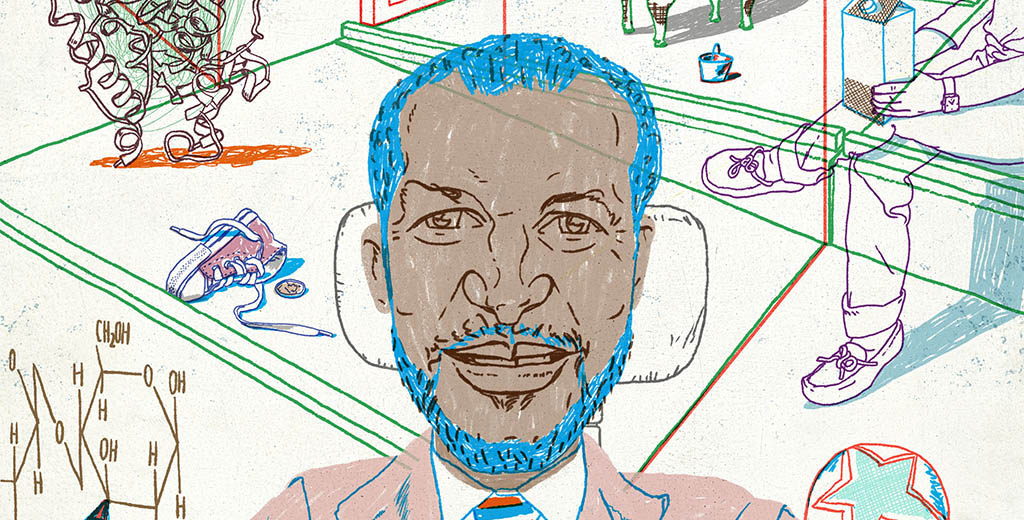In the 2000s, Eric Sibley, MD, PhD, professor of pediatric gastroenterology, was among the elite in academic medicine. He was also one of the few African Americans on a U.S. medical school faculty. He didn't yet know that he would become a member of yet another minority, the estimated 2% to 10% of practicing physicians with a disability.
When I interviewed him in the fall for a story in the new issue of Stanford Medicine magazine -- written with Julie Greicius -- he described how the slow onset of multiple sclerosis physically changed him incrementally over many years:
"Initially, my disability was not visible. Then my gait got worse. The weakness went from my right leg, then right arm, then left leg. I went from one crutch to two, then a wheelchair. ... Now my wheelchair is my desk."
Sibley's story is indeed a tale of overcoming adversity, but it's much more than that. It's about his ability to acknowledge these struggles, learn from them and forge ahead.
Career-defining experiences
His challenges have helped shape his abilities, first as a compassionate doctor and talented researcher, and then as a mentor and champion of diversity. Dorsey Bass, MD, associate professor of pediatric gastroenterology, who shared a Friday afternoon clinic with Sibley for two decades, saw how Sibley dealt with his growing disability while caring for patients:
"It was just completely inspiring how he could barely walk down the hall, and still be doing rounds and seeing outpatients, and never complaining. ... Maybe the most remarkable thing is: It didn't really seem to change who Eric was. He addressed his disability, like, 'OK, how are we going to work around this? How can I keep going?'"
Over the years, growing pain in his hands took away his ability to work in his lab. Then, just last year, when he could no longer hold up his head to look into his patients' eyes, he was forced to say goodbye to patient care. But Sibley made accommodations, developed new talents and found new opportunities at Stanford.
Finding new talents
Sibley became an academic advising dean, using what he'd learned through his struggles to help him excel at mentoring medical students. Neil Gesundheit, MD, senior associate dean for medical education, saw him in action. As he said in the story:
"Some of the students who struggle the most are from ... different racial and ethnic backgrounds who haven't had role models. Eric's been there for them, a quiet champion of diversity."
In October 2016, Sibley became the inaugural associate chair for academic affairs and liaison to the Office of Faculty Diversity and Development involved in faculty appointments and promotions, advising young faculty and helping to promote diversity in the department of pediatrics.
When Aida Habtezion, MD, associate professor of gastroenterology and hepatology, was new to Stanford, Sibley provided an invaluable role model for Habtezion.
"Eric was a very important mentor who could guide me and give me advice because he walked that path before me," she said."... It gives you hope."
Image by Jeffrey Decoster






